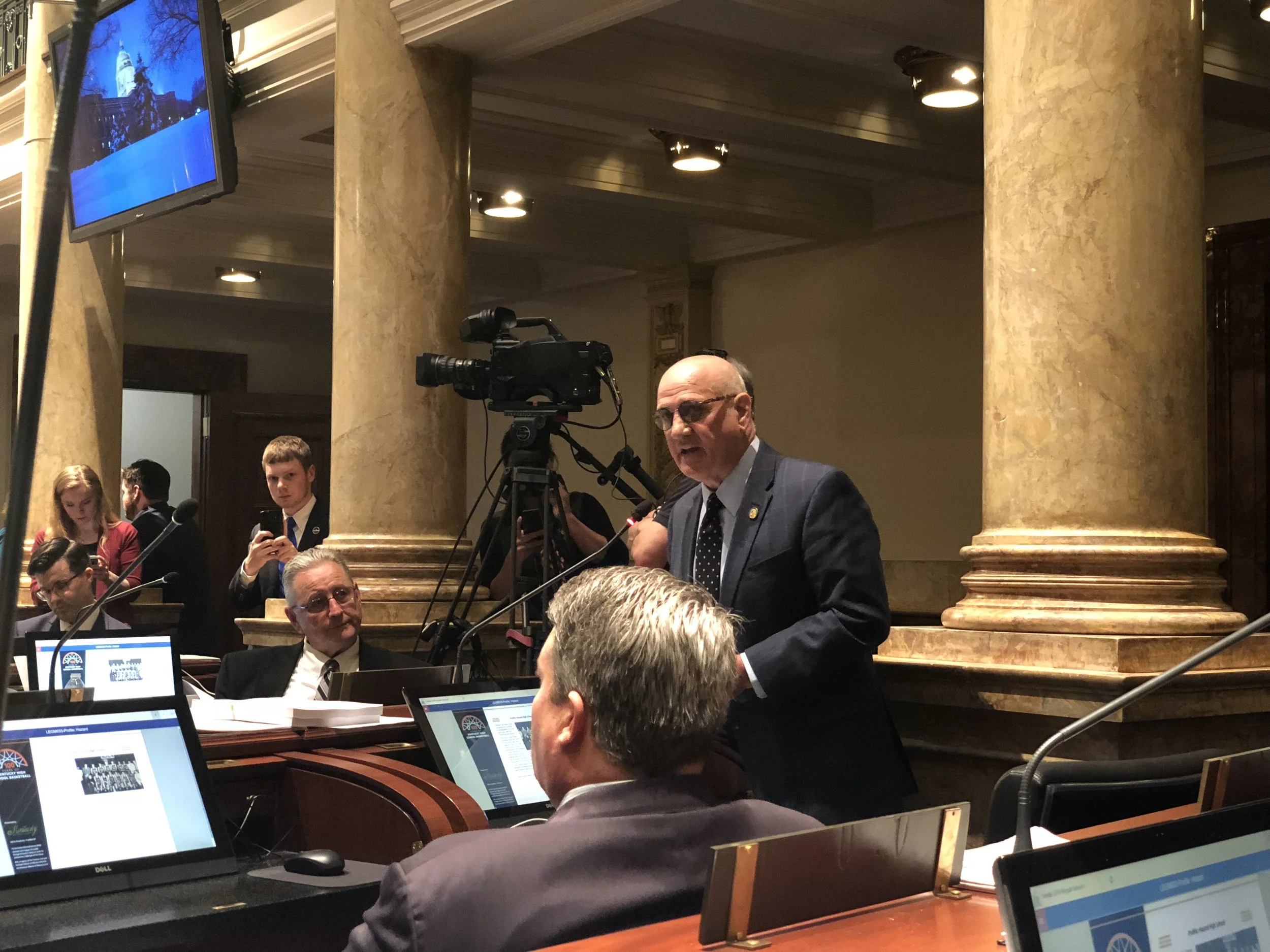Today I attended the funeral for Officer Phillip Meacham, a 38 year old peace officer in Hopkinsville who leaves behind a young family. Phillip was a high school classmate of mine, a professional colleague I worked with as a prosecutor, and he was the first officer (then a Deputy Sheriff) to respond to the farming accident that claimed the life of my father.
What I witnessed this morning was one of the most moving things I’ve ever seen. I was in the back of a section that seemed set aside mostly for those that weren’t law enforcement. That seat allowed me to observe most of the CCHS Colonel gym. Not long after I was seated a procession of local law enforcement officers and their spouses began. The line seemed to just keep going. And then I started seeing badges and shoulder patches that were unfamiliar. The officers filled the rest of the gym floor, and one whole side of the stands. There was no music. There was no talking. Just quiet footsteps and silent observance of an incredible brotherhood. According to Pastor Ron Hicks, a Chaplain for the Hopkinsville Police Department and local minister, officers came not only from across Kentucky but from across the country.
That these silent sentinels would come to pay their respects, knowing they face the same risks, is an incredible tribute to the tightly knit fraternity of peace officers and their families.
Retired HPD Lieutenant Chris Aldridge, a high school classmate of Phillip’s and fellow officer, was one of the speakers during the service. He didn’t offer prepared remarks but rather a poem I felt compelled to look up and re-read tonight. I can find no author of this poem for attribution but it was too good not to pass it along below.
Please remember the Meacham family and the brotherhood of law enforcement officers in your prayers, and thank them for their service when you next see them.
"The Final Inspection"
The policeman stood and faced his God,
Which must always come to pass.
He hoped his shoes were shining.
Just as brightly as his brass.
"Step forward now, policeman.
How shall I deal with you?
Have you always turned the other cheek?
To My church have you been true?"
The policeman squared his shoulders and said,
"No, Lord, I guess I ain't,
Because those of us who carry badges
can't always be a saint.
I've had to work most Sundays,
and at times my talk was rough,
and sometimes I've been violent,
Because the streets are awfully tough.
But I never took a penny,
That wasn't mine to keep....
Though I worked a lot of overtime
When the bills got just too steep.
And I never passed a cry for help,
Though at times I shook with fear.
And sometimes, God forgive me,
I've wept unmanly tears.
I know I don't deserve a place
Among the people here.
They never wanted me around
Except to calm their fear.
If you've a place for me here,
Lord, It needn't be so grand.
I never expected or had too much,
But if you don't.....I'll understand.
There was silence all around the throne
Where the saints had often trod.
As the policeman waited quietly,
For the judgment of his God.
"Step forward now, policeman,
You've borne your burdens well.
Come walk a beat on Heaven's streets,
You've done your time in hell."






